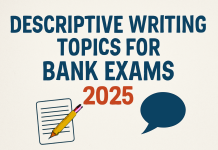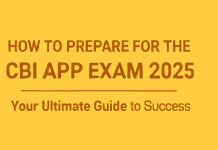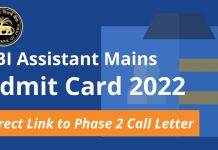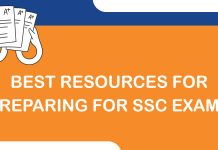SEBI Grade A 2024 notification is out, and it has left students to reconsider their preparation level. The time between the notification release and the main exam is important and nerve-wrenching and that time is going on these days in the lives of SEBI Aspirants. After the release of the SEBI Grade A notification on March 14, 2024, aspirants are completely in awe and looking for some reliable study resources. There is a solid reason behind aspirants feeling in such a way, that is the promising career SEBI comes with. Aspirants have to be completely prepared to get that level of career growth in the initial push. This initial push can only be possible if you perform explicitly in the exam. However, despite knowing all the parameters of this exam, aspirants struggle to know the starting point of the preparation. For that matter, there are platforms like us that will let you know some winning routes to get there.
Listen up, nothing is impossible and so your dream of becoming a SEBI Officer is coming true. It’s just that you have to have dedication towards your preparation process and faith in yourself. In this blog, we will talk about some expert-driven tactics that will help you manage your preparation process in the most meaningful manner. But before that, it is essential for you to get yourself acquainted with the Exam pattern and syllabus of the SEBI Grade A Exam.
Understanding Exam Pattern of the SEBI Grade A Exam
Exam pattern is the should of any recruitment process. You have to be well versed with it in order to initiate your preparation process efficiently.
| Stream / Subject | Maximum Marks | Duration | Cut Off(%) |
| Paper 1 | |||
| All Streams: Multiple choice questions on the subjects viz. General Awareness (including some questions related to Financial Sector of easy to moderate difficulty level), English Language, Quantitative Aptitude and Test of Reasoning. | 100 | 60 | 30% |
| Paper 2 | |||
| General Stream: Multiple choice questions on subjects Commerce, Accountancy, Management, Finance, Costing, Companies Act and Economics. | 100 | 40 | 40% |
| Legal, Information Technology, Official Language Stream: Multiple choice questions on Specialized subject related to stream. | |||
| Research Stream:- Multiple choice questions on subjects Economics, Econometrics, Statistics, Finance and Commerce. | |||
| Aggregate Cut off | 40% | ||
A Glance at the SEBI Grade A Syllabus
The SEBI Grade A Syllabus is different for phase 1 and phase 2 exams. Phase 1 syllabus is common for all the streams, however, the phase 2 syllabus varies from stream to stream.
SEBI Grade A Phase 1 Syllabus
| Section | Topics |
| Quantitative Aptitude | Simplification and approximation, Number Series, Quadratic Equation, Number System / HCF & LCM, Ratio and Proportion, Average, Partnership, Ages, Percentage, Profit & Loss, Time, Speed & Distance, Problems on Trains, Boat and Stream, Time & Work / Pipes and Cisterns, Simple and Compound Interest, Mixture & Allegations, Permutation and Combination, Probability, Data Interpretation (DI), Caselet DI and Data Sufficiency |
| English | Grammar, Vocabulary, Reading Comprehension, Passage Making, Error Spotting, Jumble Words, Sentence Framing, Fill in the blanks |
| General Awareness | Monetary Policies, Banking and Financial Awareness, Economic Terms, Current Affairs, Static GK, Financial and Economic News, Government Schemes. Agreement & Deals, Banking Terms- rates & processes, National Institutions |
| Reasoning | Puzzles, Seating Arrangement- Circular, Square & Linear, Data Sufficiency, Directions and Distance, Coding Decoding, Blood relations, Inequality, Syllogism, Machine input and output, Verbal Reasoning, Ordering and Ranking, Arrangement and Pattern, Scheduling, Distance and Direction, Ranking |
SEBI Grade A Phase 2 Syllabus
| Section | Topics |
| Commerce & Accountancy | Accounting as a financial information system. Accounting Standards with specific reference to Accounting for Depreciation, Inventories, Revenue Recognition, Fixed Assets, Foreign Exchange Transactions, Investments. Cash Flow Statement, Fund flow statement, Financial statement analysis; Ratio analysis. Accounting for Share Capital Transactions including Bonus Shares, Right Shares. Employees Stock Option and Buy-Back of Securities. Preparation and Presentation of Company Final Accounts. |
| Management | Management: its nature and scope; The Management Processes; Planning, Organization, Staffing, Directing and Controlling. The Role of a Manager in an Organization. Leadership: The Tasks of a Leader. Leadership Styles; Leadership Theories; A successful Leader versus an effective Leader. Human Resource Development: Concept of HRD; Goals of HRD. Motivation, Morale and Incentives: Theories of Motivation; How Managers Motivate; Concept of Morale; Factors determining morale; Role of Incentives in Building up Morale. Communication: Steps in the Communication Process; Communication Channels; Oral versus Written Communication; Verbal versus non-verbal Communication; upward, downward and lateral communication; Barriers to Communication, Role of Information Technology. |
| Finance | Financial System: Role and Functions of Regulatory bodies in Financial Sector Financial Markets: Primary and Secondary Markets (Forex, Money, Bond, Equity, etc.), functions, instruments, recent developments. General Topics: Basics of Derivatives: Forward, Futures and Swap. Recent Developments in the Financial Sector. Financial Inclusion- use of technology. Alternate source of finance, private and social cost-benefit, Public-Private Partnership. Direct and Indirect taxes; Non-tax sources of Revenue, GST, Finance Commission, Fiscal Policy, Fiscal Responsibility and Budget Management Act (FRBM). Inflation: Definition, trends, estimates, consequences, and remedies (control): WPI, CPI – components and trends. |
| Costing | Overview of Cost and Management Accounting – Introduction to Cost and Management Accounting, Objectives and Scope of Cost and Management Accounting, Methods of Costing – Single Output/ Unit Costing, Job Costing, Batch Costing, Contract Costing, Process/ Operation Costing, Costing of Service Sectors, Basics of Cost Control and Analysis – Standard Costing. Marginal Costing. Budget and Budgetary Control, Lean System and Innovation:- Introduction to Lean System. Just-in-Time (JIT). Kaizen Costing. 5 Ss. Total Productive Maintenance (TPM). Cellular Manufacturing/ One-Piece Flow Production Systems. Six Sigma (SS). Introduction to Process Innovation and Business Process Re-engineering (BPR). |
| Companies Act | The Companies Act, 2013 – Specific reference to Chapter III, Chapter IV, Chapter VIII, Chapter X, Chapter XI, Chapter XII and Chapter XXVII. |
| Economics | Demand and Supply, Market Structures, National Income: Concepts and Measurement, Classical & Keynesian Approach Determination of output and employment, Consumption Function, Investment Function, Multiplier and Accelerator, Demand and Supply for Money , IS – LM, Inflation and Phillips Curve, Business Cycles, Balance of Payments, Foreign Exchange Markets, Inflation, Monetary and Fiscal Policy, Non-banking Financial Institutions. |
Importance of a Strategized Study Plan for the SEBI Grade A Officer Exam
The main contrast between strategic preparation and merely covering the syllabus lies in the direction they provide for exam success. While a strategy guides you on how to tackle the exam effectively, simply going through the syllabus may not ensure the same level of efficacy.
A well-thought-out study plan not only helps you cover the material but also trains you to recognize question types quickly. This means that preparing according to a study plan will likely result in more efficient preparation compared to just completing the syllabus.
SEBI Grade A 2024 Study Plan 2024
Our SEBI expert at ixamBee Ms. Vidhika Ma’am has curated a week-wise SEBI Grade A study Plan as per all the updates in SEBI Grade A Exam Pattern and Syllabus. Not only this, she has also bifurcated it among working and non working aspirants. So, forget all the worries and get along with us as we take you on the ride of a strategic study plan for the SEBI Grade A Exam 2024. Even if you are a fresher, which means someone who is applying for this exam for the first time, you are about to get some insightful preparation strategies from this study plan.
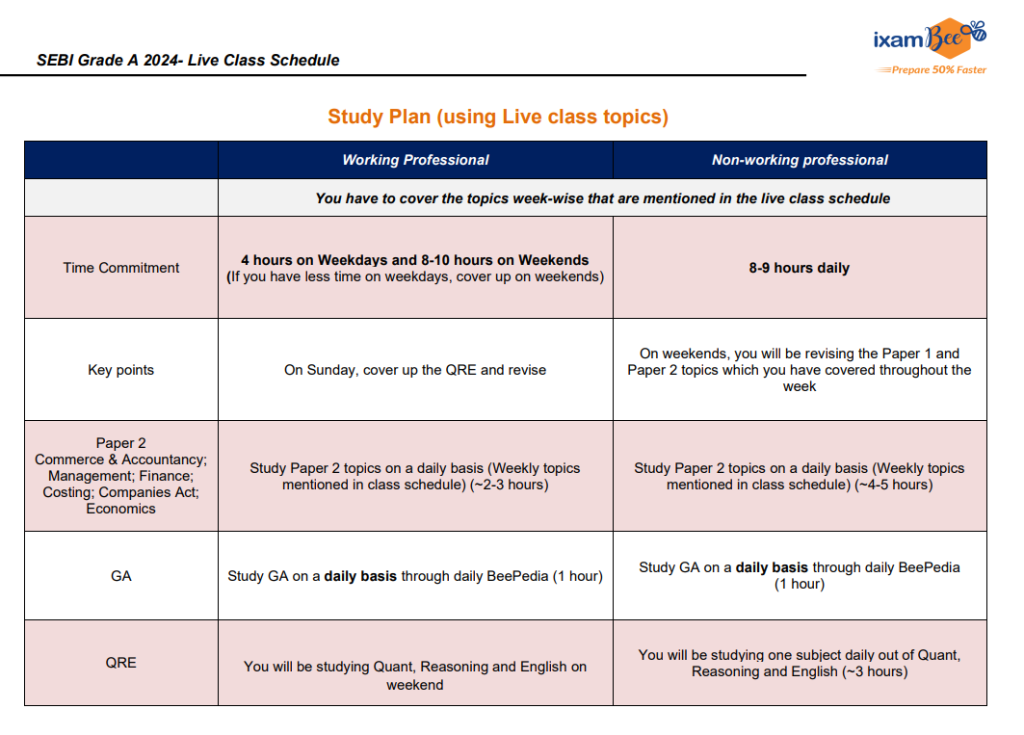
Download the complete SEBI Grade A Study plan by registering on the website (If not already).
Things to consider while studying from the SEBI Grade A Study Plan
- Allocate a daily study period of 7 to 8 hours, categorizing it for different subjects.
- On weekends, focus on reviewing the week’s study material comprehensively.
- While delving into a specific topic, complement your learning with relevant YouTube videos.
- Cultivate the habit of daily newspaper reading to bolster your grasp of current affairs and general knowledge.
- Maintain organized notes when perusing current affairs online, gradually building a journal brimming with valuable insights on latest news and updates.
- Overcome apprehensions about descriptive English by committing to reading at least one newspaper editorial daily.
- Prioritize SEBI Grade A mock test practice to refine both your accuracy and time-management skills.
- Elevate your reading speed by engaging with newspapers, magazines, and social media content. Additionally, access free sources online for current affairs downloads.
Conclusion
In the journey to becoming an extraordinary SEBI Grade A professional, a well-structured study plan is your compass. It’s not just about completing the syllabus; it’s about preparing strategically. This plan, tailored to the SEBI Grade A exam’s multi-tiered pattern, equips you to tackle each stage with confidence. From General Awareness to Descriptive English, we’ve got you covered. The week-wise plan, supported by daily reading, video learning, and mock tests, paves the way for your success. So, buckle up and embark on this adventure. Start now, and you’ll be well-prepared to conquer the SEBI Grade A Exam in 2024. Your journey begins with a plan!




